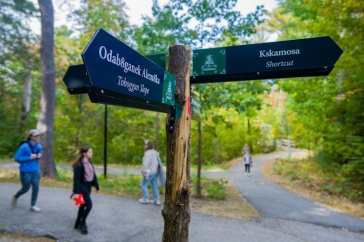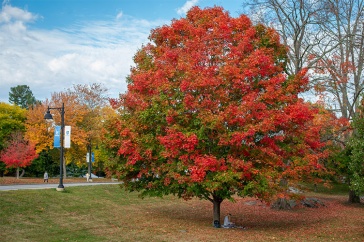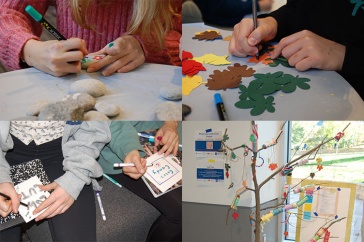
In June of 2012, with the support of the Center for International Education’s Faculty International Development Grant, I traveled to Perugia, Italy to eat my body weight in such local delicacies as homemade barbozzo (cured pig’s meat), porcini alla griglia(grilled porcini mushrooms), and torciglione (an eel-shaped almond pastry). And I also participated in a conference entitled Italian Food: Fact and Fiction at the Umbra Institute, an academic institution where students from a wide variety of American Universities can spend a summer, a semester, or a year abroad taking classes with Italian students from the Università degli studi di Perugia. The Umbra Institute’s interdisciplinary Food Studies Program is a new addition to their curriculum, and the conference was intended to highlight the exciting potential of inter- and multi-disciplinary approaches to Italian food as it relates to Italian national identity. The conference’s keynote speakers were Massimo Montanari, a professor at the University of Bologna and one of the world’s foremost authorities on food history, and Ken Albala, a professor at University of the Pacific and the prolific author of works on the food culture of the Italian Renaissance.
Some of the diverse panel topics included Food and Politics, Changes in Consumption and Production, Food Perceptions and Issues for American Universities in Italy, and Stories told by Cookbooks. My colleague, Paula Salvio (UNH Department of Education), and I delivered a joint paper entitled “At the Center of the Table: Alimentary Pedagogies in the Culinary Spaces of Ferzan Özpetek’s Films” for a panel on Food in Cinematic Representation. Our paper explored Öspetek’s kitchens and dining tables as relational sites where cooking, feeding, and sharing meals work as forms of melancholic political resistance.
In addition to giving the paper, one of my goals in attending this conference was to connect with faculty and administrators from other institutions that either offer Italy-focused food studies programs or are interested in doing so in order to both learn from their experiences and to promote the newly created curriculum at UNH-in-Italy’s Ascoli Piceno campus. During the conference, I met the Umbra Institute’s Director of Academic Programs, Francesco Burzacca, as well as the Assistant Director of the Food Studies Program, Zachary Nowak, and we have kept in touch since then.
After the conference, Professor Salvio and I also traveled to Rome where we visited a number of sites and museums related to Fascism and World War II such as the Fosse Ardeatine, the Synagogue in the Jewish Ghetto, and the Museo Storico della Liberazione for another collaborative project we are working on that deals with the commemoration of Fascist atrocities. I am very grateful to the Center for International Education for the opportunity to travel to both Perugia and Rome in order to pursue scholarly, pedagogical, and gastronomic activities!
Photo above: Amy Boylan with Francesco Burzacca, the Director of Academic Programs at the Umbra Institute



















































